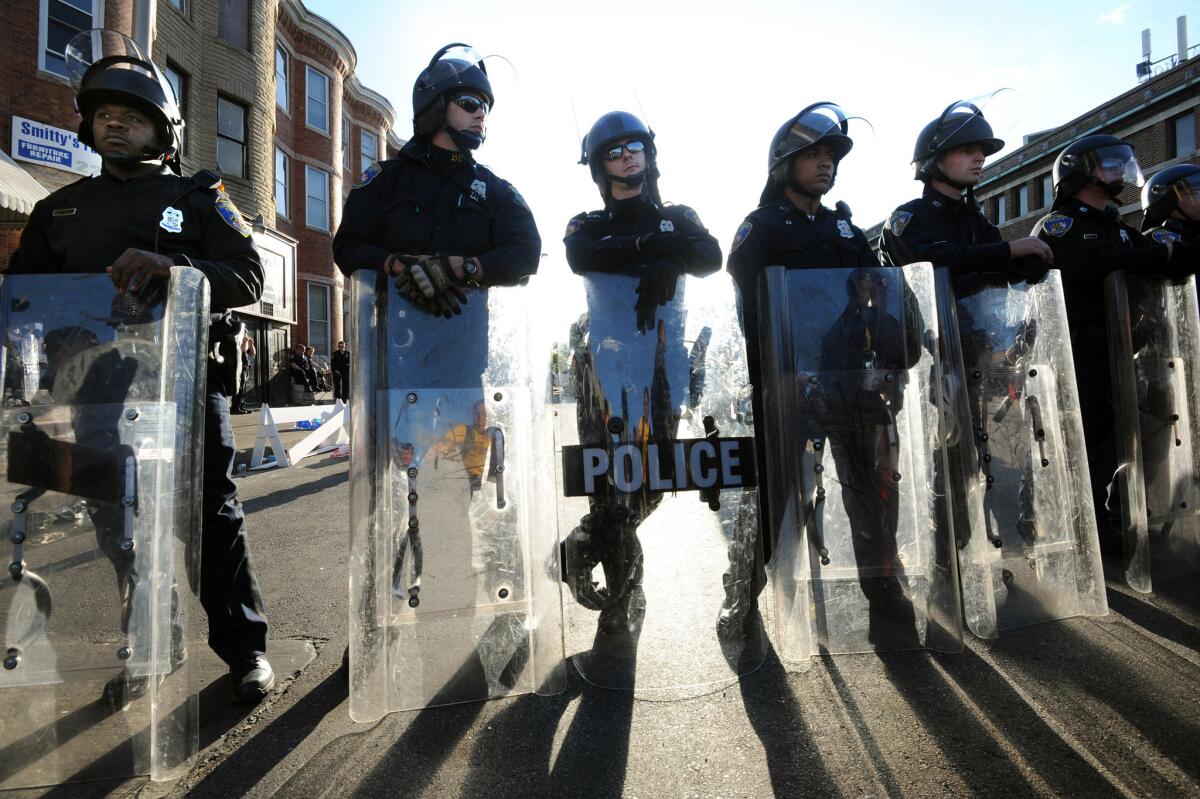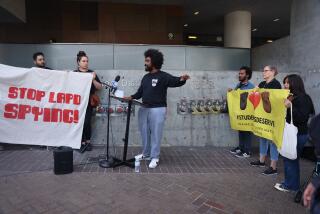Secret aerial surveillance by Baltimore police stirs outrage

The revelation that a private company has been conducting secret aerial surveillance on behalf of the Baltimore Police Department — collecting and storing footage from city neighborhoods in the process — sparked confusion and outrage Wednesday among elected officials and civil liberties advocates.
Some demanded an immediate halt to the program pending a full, public accounting of its capabilities and its use in the city to date, including in the prosecution of criminal defendants. Some called it “astounding” in its ability to intrude on individual privacy rights, and legally questionable in terms of constitutional law.
Others did not fault the program but said it should have been disclosed publicly before it began in January.
The program — in which Ohio-based Persistent Surveillance Systems has for months been testing sophisticated surveillance cameras aboard a small Cessna airplane flying high above the city — was first disclosed by Bloomberg Businessweek.
The arrangement was kept secret in part because it never appeared before the city’s spending board, paid for instead through private donations handled by the nonprofit Baltimore Community Foundation.
T.J. Smith, a police spokesman, confirmed Wednesday that the company had conducted 100 hours of surveillance in January and February and 200 hours of surveillance between June and this month. It will continue conducting surveillance for another several weeks before the police department evaluates the operation’s effectiveness, he said.
Smith acknowledged that the plane’s cameras can record footage of 32 square miles of the city at any given moment and that its work had never been publicly disclosed. But he took issue that it was kept secret.
“There was no conspiracy not to disclose it,” he said. “We consistently go out and get ourselves involved in new technology, find different ways to bring that technology to Baltimore.”
Others disagreed about the need for disclosure.
“I’m angry that I didn’t know about it and we did it in secrecy, which is unacceptable,” said City Councilman Brandon Scott. “We have to be transparent about it and we have to make sure that we’re using it in the right way, especially given all of the things that have come out about the Police Department.”
David Rocah, a staff attorney with the American Civil Liberties Union of Maryland, was sharply critical. “The fact that the city of Baltimore thought that they could adopt it in secret with no public input is beyond astounding,” he said.
Police spokesman Smith and Ross McNutt, the founder of Persistent Surveillance, said the cameras transmit surveillance footage to analysts on the ground who can review it in real time or after the fact, moving backward and forward through time to identify and track individuals and vehicles in areas where crimes have occurred.
Anne McKenna, a visiting assistant professor of law at Penn State University and a legal consultant to the U.S. Department of Justice on aerial surveillance issues, said the new surveillance program raises all sorts of legal questions.
While there are U.S. Supreme Court decisions backing police use of certain aerial surveillance techniques, the nation’s highest court has also restricted the ability of law enforcement to indiscriminately track individuals — an ability essentially given to Baltimore police through the surveillance footage now being collected.
“There’s no question that the technology enables 24/7 tracking of someone from the minute they leave their house, as long as the plane can be kept in the air,” she said. “Where is that data going and who has access to it and under what circumstances can it be accessed?”
Rector and Broadwater write for the Baltimore Sun.
ALSO
Baltimore terminates contract with attorney accused of neo-Nazi ties
Baltimore police routinely violated the rights of blacks, Justice Department report says
Editorial: Reckoning for Baltimore’s police department resonates around the country
More to Read
Sign up for Essential California
The most important California stories and recommendations in your inbox every morning.
You may occasionally receive promotional content from the Los Angeles Times.










